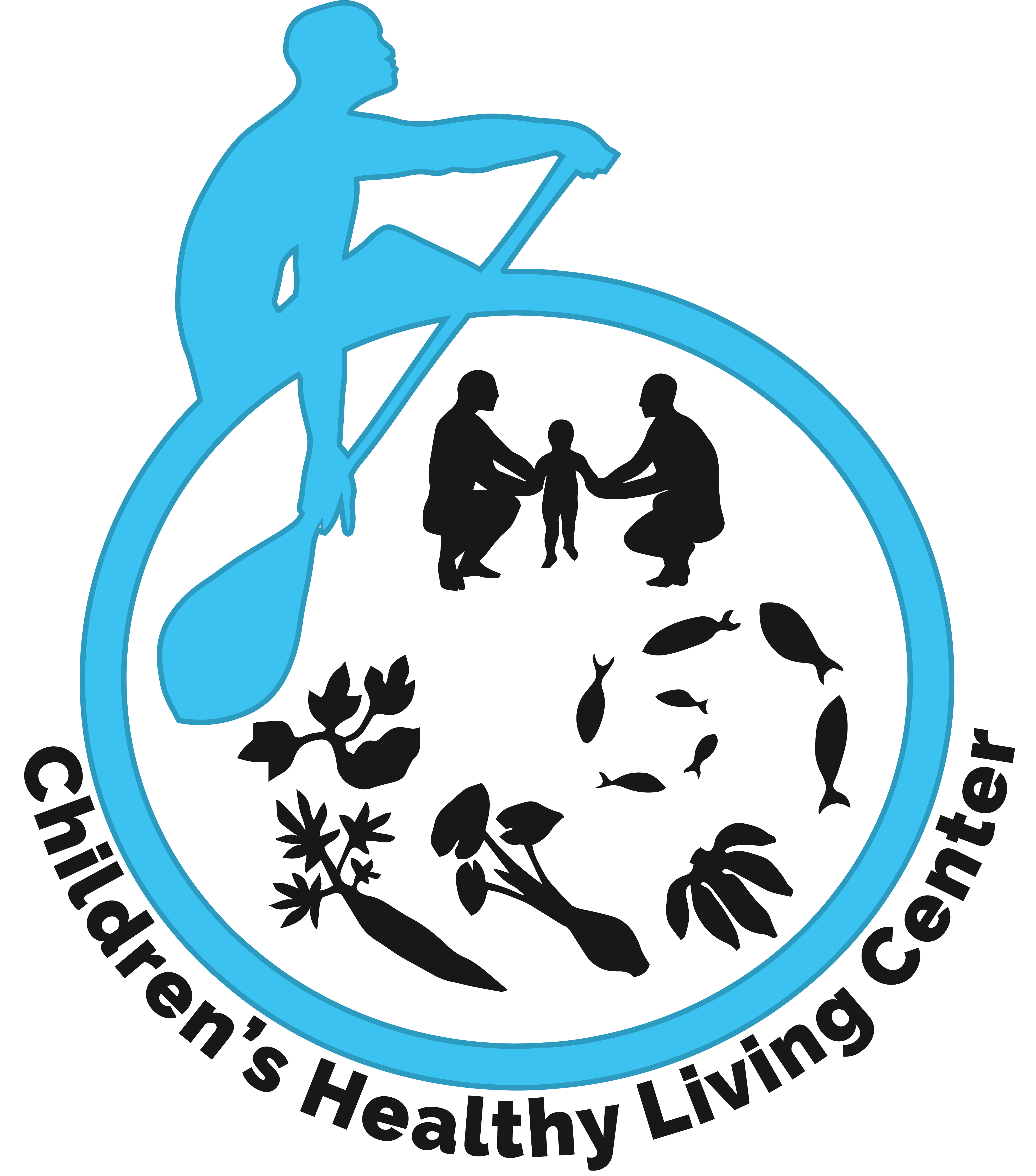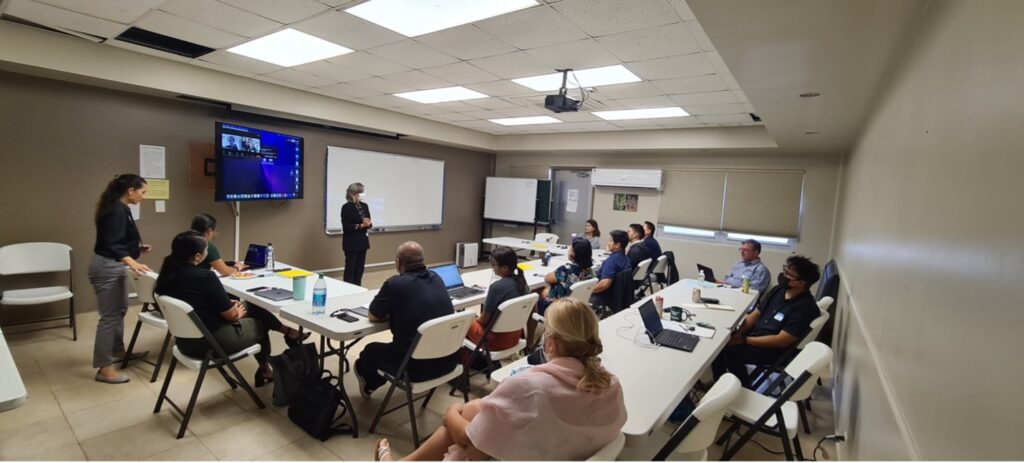Written By: Gabrielle Damian, CHL Food Systems Guam Project Manager
As part of the Children’s Healthy Living-Food System Resiliency (CHL-FS) grant, the first Group Model Building (GMB) workshop in Guam was conducted at the University of Guam in February 2023. As an extension of the Children’s Healthy Living (CHL) Program, the CHL-FS grant aims to map out a jurisdictional and regional food system in order to assess the drivers of the food system on diet quality of local children, and across the US Affiliated Pacific region. The CHL-FS Guam jurisdiction team invited local community partners to participate in the first GMB workshop. Representatives from the University of Hawai’i at Mānoa and Case Western University helped to facilitate the Guam GMB workshop.
Community partners, the CHL-FS Guam team, and visiting facilitators convened at the University of Guam’s Agriculture and Life Science building on February 9th, 2023 to aide in mapping Guam’s food system to identify factors that influence the local child’s diet. In attendance were eight participants from various ethnic and professional backgrounds, spanning food production and sustainability (Guahan Sustainable Culture and Farmers’ Cooperative Association of Guam), government sectors (Guam WIC program and the Guam Department of Education’s Child Nutrition Program), outreach programs (SNAP-Ed, EFNEP, and Farm to School Network), and consumer sectors (Payless Supermarkets Health Smart program). Reaching a full circle in careers, two participants acknowledged they were former CHL staff and offered perspectives from previous ventures of the CHL program in Guam during its infancy.
Facilitation of this event involved the CHL Core Modeling team to include Dr. Rachel Novotny (CHL-FS principal investigator), Dr. Jean Butel (CHL-FS program manager), and Dr. Peter Hovmand (System dynamics scientist) as well as the Guam jurisdiction lead, Dr. Tanisha Aflague and five staff from the CHL-FS Guam team and the University of Guam’s Cooperative Extension and Outreach program. The CHL-FS Guam jurisdiction and Core Modeling Team worked diligently to select a well-rounded and engaged group of participants who put in an equal amount of passion and perspective into responses to and discussions around the central question, “what are drivers that influence the young child’s diet in Guam?”
Upon opening, participants were greeted by the CHL-FS Guam team and received a welcoming message by Guam’s jurisdiction lead, Dr. Tanisha Aflague. Guam’s GMB workshop began with a background overview provided by Dr. Novotny who discussed CHL’s core values and the journey of those values as it leads into CHL’s ongoing second phase, CHL-FS. Throughout the workshop, major activities had participants contribute both individually and collaboratively to complete workshop discussions and activities such as Hopes & Fears, wants for change over time (Graphs Over Time), thoughts on variables that impact a healthy child diet (Causal Loop Diagram), and actions they can execute to elicit change within their scopes of work (Action Ideas). Lively and constructive participation was achieved and maintained often by expressing thoughts and promoting discussions actively and openly. Despite variations in opinions and perspectives, each discussion was handled with grace, mutual respect, and enlightening discourse. With such a well-rounded group in attendance, networking occurred naturally and frequently throughout the workshop. All joined together to celebrate the collaboration of our community partners with a fiesta style lunch of baked chicken, red rice, meatloaf, and a traditional dish consisting of spinach in coconut milk called, gollai hagun suni. A light dessert of fresh fruit and CHamoru latiya was served as an afternoon snack.
Throughout the GMB workshop, major themes were revealed like behavior, policy, and environment. A major recurring theme found throughout each activity was the need to enforce existing policies regarding children’s healthy eating. Policies embedded in systems like the Department of Education and the Department of Public Health and Social Services were quickly addressed by participants in all activities. Other themes identified by participants included behavior with specific variables such as increasing knowledge of local fruits and vegetables as well as the concern for increased availability of imported foods.
The Guam jurisdiction is currently in the process of planning a follow-up GMB with participants to review the resulting digitized Causal Loop Diagram and to discuss any need for change or clarification to the Diagram. The Guam jurisdiction hopes to further collaborate not only with those who participated in the GMB, but all who were invited and couldn’t make it as we plan for the formation of a Local Advisory Committee.



